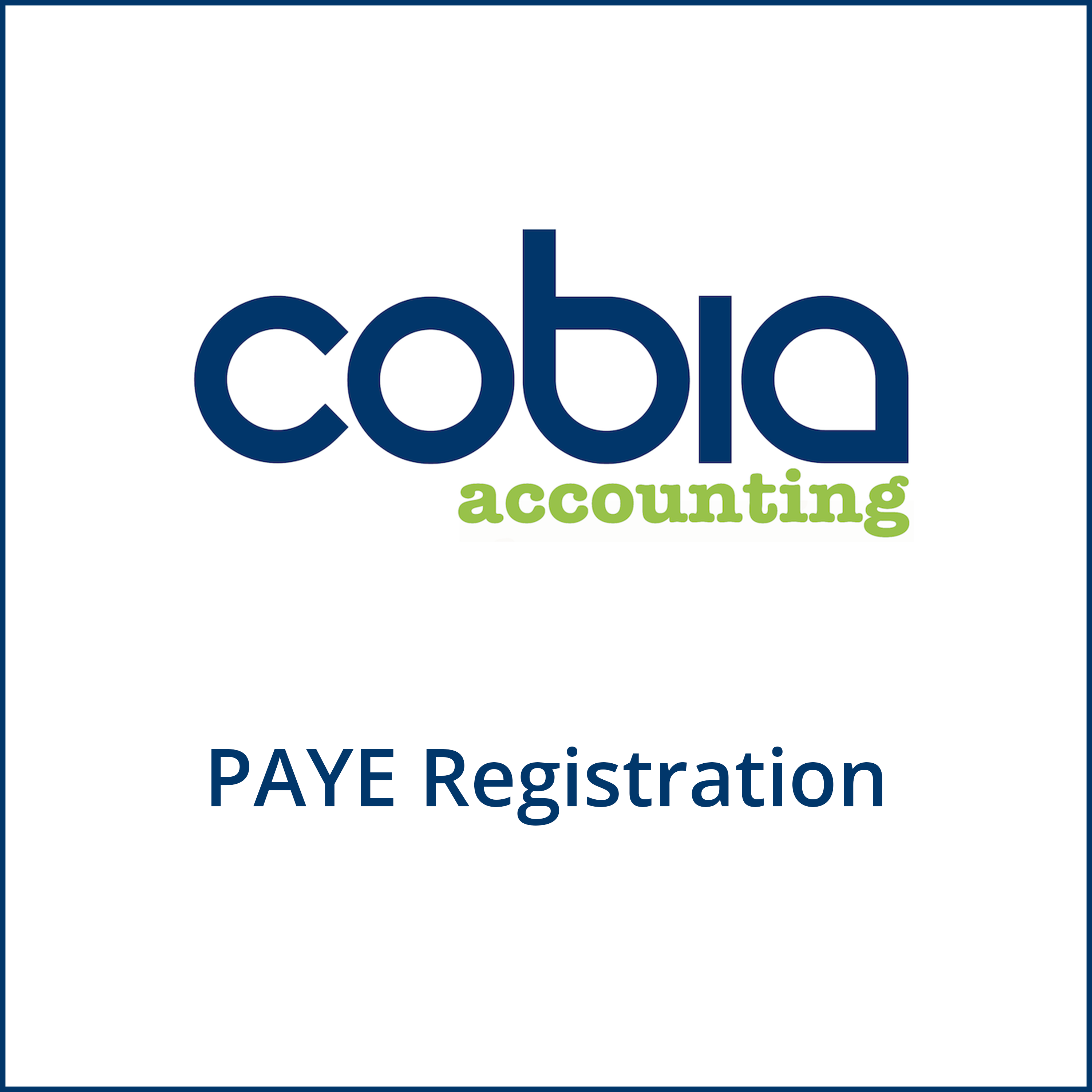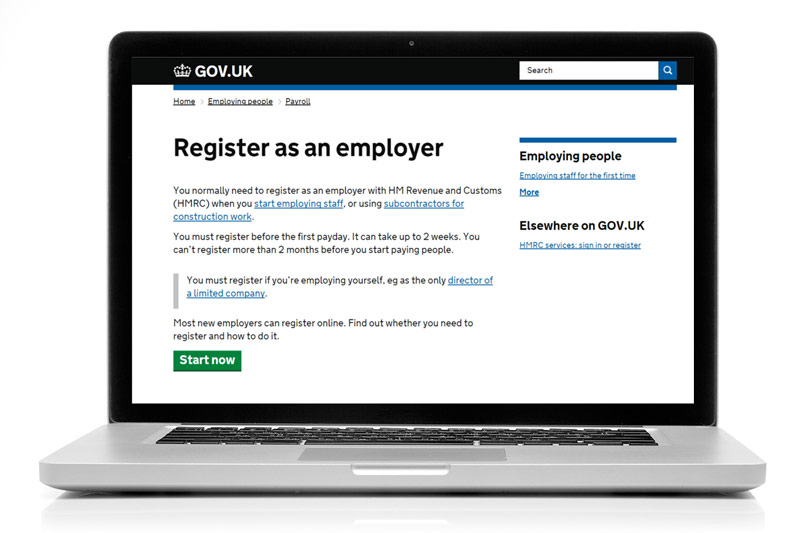If you or anyone you employ needs to be paid a salary it is compulsory for your business to be registered as an employer with HMRC.
This also applies even if you are the only Director of your company, with no other employees, assuming you intend to pay yourself some form of salary. Once registered you can operate a PAYE (Pay As You Earn) scheme which means you are required to deduct income tax and national insurance at appropriate rates each time you pay a salary and report this to HMRC using the new online Real Time Information (RTI) system introduced by HMRC.


Once you have decided that you want us to compete your PAYE registration, you can either select one of our incorporation packs that includes PAYE registration.
Alternatively you can simply add this to your order during our company formation order process. As soon as your company is incorporated, our partner Cobia will contact you via email to advise you of the additional information needed to complete your PAYE registration. Please note HMRC will only register your company for PAYE if you are intending to pay salaries within the next month. PAYE registration can take up to one week and once you have a PAYE reference number you will be obliged to file an RTI report to HMRC at the time salaries are paid
This payroll information must be submitted online to HMRC, whether weekly or monthly, rather than at the end of the year, as was previously the case. Even if you have not paid any wages or salaries during the month a NIL RTI report has to be filed.
How much PAYE should I deduct from employees’ earnings?
This depends on employees’ earnings and their tax code. The calculations can be laborious and there are a number of payroll systems available on the market which can do this for you. Alternatively, you can seek Cobia Accounting’s help and advice to calculate the payroll amount and make the online RTI filings for you.
How do I pay HMRC the tax and National Insurance deducted?
You need to pay over the tax and national insurance due on salaries paid each month to HMRC following the month of salary payment. If the tax and national insurance amount deducted is less than £1,500 a month you can arrange to pay this over to HMRC on a quarterly basis although it is preferable to still pay monthly as this lessens the chances of you falling into arrears.
This amount can be paid by Direct Debit or via bank transfer to HMRC.
Tax months end on the 5th, so your payment needs to be in by the 19th. If you make electronic payments, they need to be in by the 22nd.
What happens if I don’t pay HMRC or file RTI returns on time?
HMRC will charge interest on any tax amount not paid on time and any RTI returns not filed on time can result in fines and penalties. It is therefore important that you make sure the filing deadlines are met and you don’t fall into arrears with PAYE payments. HMRC does not look kindly on late payment of PAYE or National Insurance. After all, it is not the employer’s money!
How are employees kept informed of how much they have paid under my PAYE scheme?
Each monthly pay slip will show the amount of tax and NI deducted for that month and the amount for the year to date. At the end of the tax year (5 April), each employee must be issued with a P60, which details gross income paid, all deductions and the amount of net PAYE.
Where can I get more help and advice?
You can call Cobia on 01582 390 111 to discuss your specific circumstances and one of their experienced staff members will be glad to assist.
You can also read additional information on the following Government website https://www.gov.uk/topic/business-tax/paye

Any Questions? Call Us FREE! 0808 168 3676
Do you require further assistance? Call our FREE helpline to speak with our professional advisers.